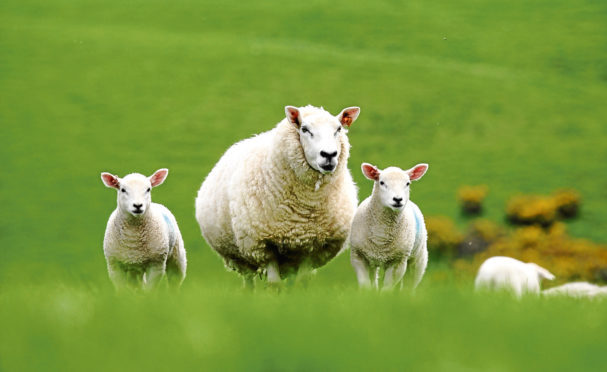Adding a mixture of herbs and legumes into grazing swards can help improve sheep performance and reduce the need to use wormers.
Scientists at University College Dublin (UCD) found that compared to perennial rye grass grazing, adding herbs to multi-species swards could reduce days to slaughter by more than 10 days and slash the need to use anthelmintics to tackle worms.
UCD scientist Cornelia Grace said four ‘farmlets’, each stocked with 30 twin-rearing ewes, were established.
The farmlets contained either perennial rye grass swards, perennial rye grass with water clover swards, a six species sward (two grasses, legumes and herbs), or a nine species sward (three grasses, legumes and herbs).
Lambs were weaned at 14 weeks and drafted for slaughter at 45kg, during which time they were weighed every two weeks and faecal egg counts were measured.
Lambs were treated with anthelmintics once the group parasite burden reached a set threshold, and the scientists measured the days between each treatment.
“We found that adding herbs to multi-species swards increased weaning weights, with lambs on rye-grass swards weaning at 30.6kg, and those on six species swards weaning at 32.6kg,” said Ms Grace.
“The sward type also had a significant effect on days to slaughter, with lambs reared on perennial rye grass registering 175 days, compared to 162 and 164 days for the six and nine species swards.”
She said the number of worm treatments was also lower on herb-rich multi-species swards.
